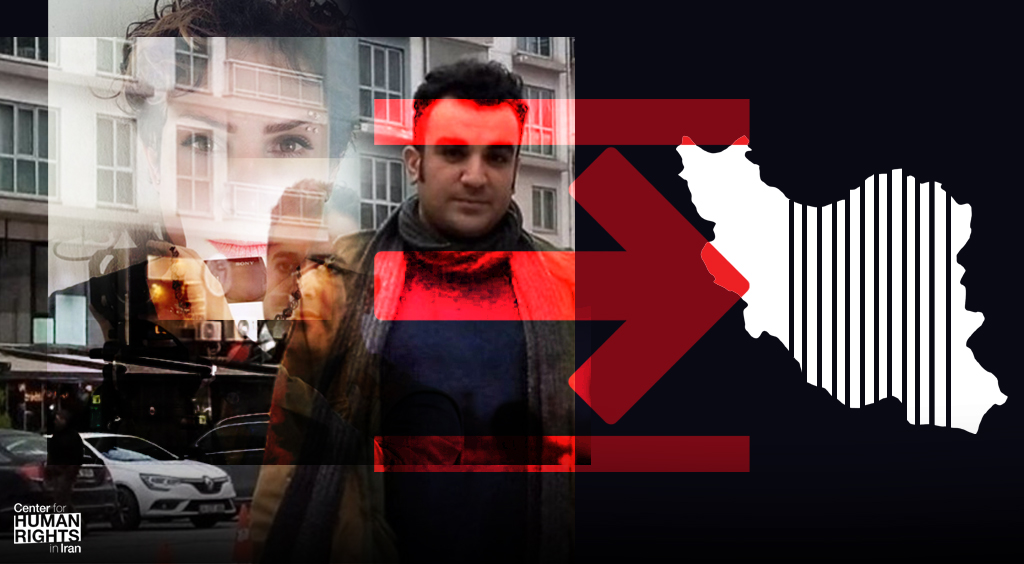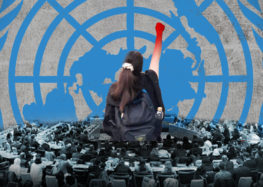Activists Seeking Refuge in Turkey Face Deportation, Severe Persecution in Iran

International Community Must Take Action to Halt Deportations
December 21, 2023 – Iranian civil and political activists, forced to flee political persecution in the Islamic Republic, face expulsion from their refuge in Turkey and extradition back to Iran. Given the grave concerns for their fate, the Center for Human Rights in Iran (CHRI) urges immediate international assistance to prevent their forcible return to a country marked by severe human rights abuses and a biased judicial system.
“These activists face arbitrary detention, possible torture, sham convictions on national security charges, and years of prison if they are extradited back to Iran,” said CHRI Executive Director Hadi Ghaemi.
“The Turkish government should immediately halt these deportations, and the UN Refugee Agency, which handles these cases, should protect these refugees,” he stressed.
CHRI’s investigations have confirmed the deportation of one such activist, Shahriar Baratinia, now entangled in an opaque judicial process in Iran where judges are beholden to the intelligence and security apparatus. Baratinia faces manufactured national security charges stemming from Instagram posts in which he peacefully criticized state policies.
Further revelations by CHRI underscore the jeopardy faced by 11 other Iranian activists who are also vulnerable to extradition to Iran. Their names are provided below.
- CHRI calls upon the Iranian authorities to immediately and unconditionally release Shahriar Baratinia.
- CHRI calls upon the government of the Republic of Turkey to immediately halt all deportations of Iranian citizens back to the Islamic Republic.
- CHRI also calls upon the international community—the UN High Commissioner for Refugees (UNHCR), the Office of the United Nations High Commissioner for Human Rights (OHCHR), and governments worldwide to call upon the Turkish authorities to halt these deportations and urge the Iranian authorities to release Baratinia.
Deported and Re-Arrested, 27-Year-Old Activist Faces Years of Imprisonment
Due to their precarious situation, many of these refugees are unwilling to discuss their cases publicly. CHRI was however, able to speak to an informed and reliable source with detailed knowledge of Baratinia’s case.
Baratinia, a 27-year-old human rights activist from the city of Yasouj, in Iran’s Kohgiluyeh and Boyer-Ahmad province, was detained in Istanbul on June 22, 2023, and transferred to the Doğubeyazıt Camp in eastern Turkey. He was handed over to Iranian border guards on August 3.
After being deported to Iran, Baratinia was first taken to the Ministry of Intelligence’s detention center in the city of Khoy, West Azerbaijan province, where he was interrogated by state intelligence agents without access to a lawyer. On August 22, he was transferred to Evin Prison in Tehran and placed in solitary confinement in Ward 209, again under the control of the Ministry of Intelligence. He is currently being held in Evin’s Ward 4, a general ward for prisoners.
“After Shahriar’s arrest, his family was unaware of his whereabouts for about 20 days,” A source close to Baratinia told CHRI. “[The family] went to various security agencies in Tehran, Yasouj, Shiraz, Azerbaijan, and anywhere else they could think of, but no one would give them answers. Finally, Shahriar made a brief call to his family to say he was in Evin Prison.”
Regarding the reason for Baratinia’s arrest, the source said: “Shahriar published articles on his Instagram page, which was very popular. Media outlets also quoted his writings. He was active in several areas. For example, he engaged in issues such as the environment and the impact of dam construction, suicides, as well as poverty in areas populated by ethnic Lurs.”
These peaceful activities and social media posts led to his initial arbitrary arrest by Intelligence Ministry agents on July 8, 2021, in Sanandaj, the capital of Iran’s Kurdistan province, without a warrant. His identification documents were also confiscated.
After about four months of interrogations at the Ministry of Intelligence offices in Sanandaj, Tehran, and Shiraz, as well as in Yasouj Central Prison, he was released on bail set at 700 million tomans (approximately $23,000 USD). Due to the threat of being re-arrested and imprisoned on sham charges, he escaped Iran, and the bail his family had posted was seized by the Islamic Revolutionary Court in Yasouj.
During his latest detention in Evin Prison, the human rights activist went on a hunger strike for nine days to protest being held in solitary confinement. Finally, on November 2, 2023, he was transferred to the general Ward 4.
Denied access to a lawyer, Baratinia’s first trial session was held on December 10 at Branch 26 of the Islamic Revolutionary Court in Tehran, presided by Judge Iman Afshari. He was charged with “assembly and collusion against national security” and “propaganda against the state.”
The judicial system in Iran routinely and systematically violates both Iranian and international laws regarding due process and fair trial rights. Activists in situations like Baratinia’s face years of imprisonment after sham trials, where severe violations are ignored by the judges and convictions are regularly issued on the basis of forced false “confessions” that have been extracted under torture and retracted in court. Once in prison in Iran, many political prisoners suffer from serious medical issues for which they are denied access to proper medical care.
At Least Eleven Other Activists at Risk of Deportation and Persecution in Iran
CHRI can confirm that the following activists are also in danger of being extradited from Turkey to Iran:
- Amir Kahrizi
- Ali Gholilou (Qoliloo)
- Zanyar Aziznejad
- Abdollah Sabz
- Nasser Kamangar
- Arezoo Molanaei
- Mahshid Nazemi
- Gholamreza Khajavi
- Shogar Mohammadi
- Hossein Menbari
- Sasan Rezaei
“These peaceful activists—those already forced back to Iran and those facing extradition—face grave and imminent risks,” stated Ghaemi. “Their dire circumstances call for urgent international support and protection.”
Read this article in Persian
This report was made possible from donations by readers like you. Help us continue our mission by making a tax-deductible donation.

